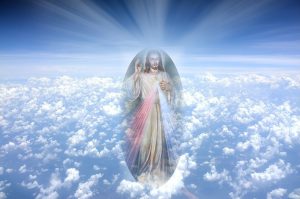 This series of articles follows on from the Council of Nicaea (Significant Moments in Church History, number 1). There I concluded that around 325 A.D. a new version of Christianity was created by Emperor Constantine in order to find a religion which could unify his empire. The most significant feature was that it was decided that Jesus was divine and of the same nature as God the Father. There was then an attempt to destroy all evidence of alternative understandings. This opens up the possibility of trying to reconstruct these earlier versions of Christianity, which is the aim of this next series. In saying this, I am completely aware that I am delving into what Michael Baigent and Richard Leigh call “the muddle of contradictions that confronts all researchers into biblical material” (1). I am not necessarily expecting to shed any more light on these matters than others before me, but am hoping at least to spread awareness about the issues involved, and open them up for debate.
This series of articles follows on from the Council of Nicaea (Significant Moments in Church History, number 1). There I concluded that around 325 A.D. a new version of Christianity was created by Emperor Constantine in order to find a religion which could unify his empire. The most significant feature was that it was decided that Jesus was divine and of the same nature as God the Father. There was then an attempt to destroy all evidence of alternative understandings. This opens up the possibility of trying to reconstruct these earlier versions of Christianity, which is the aim of this next series. In saying this, I am completely aware that I am delving into what Michael Baigent and Richard Leigh call “the muddle of contradictions that confronts all researchers into biblical material” (1). I am not necessarily expecting to shed any more light on these matters than others before me, but am hoping at least to spread awareness about the issues involved, and open them up for debate.
In asking the question in the title, I am aware that there is a very powerful argument, put forward by several authors, that Jesus did not exist as a human being at all. The most common reasoning is that the story as presented in the gospels “is in fact a mythical copy of many preceding saviours” (2). This is undoubtedly so, but can be explained by the suggestion from my previous article that post-Nicean Christianity was an attempt to synthesize earlier Christianity with pagan elements. This does not prove absolutely that a human figure did not exist; it would merely suggest that the actual life of any historical figure might be significantly different from the mythical version. So in this series of articles, I am going to assume that a human Jesus did exist, and see where that assumption can take us.
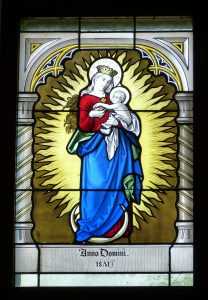 So, was Jesus divine, the Son of God, whatever that means? The simple answer is that we just don’t know – anything is possible, so I am not ruling it out. However, in this series I shall be examining the reasons why it might not be true, thus the evidence against it. It would be interesting then to hear from traditional Christians who still believe it, and their reasoning. To say that it says so in the Bible would not be, to my mind, a satisfactory response.
So, was Jesus divine, the Son of God, whatever that means? The simple answer is that we just don’t know – anything is possible, so I am not ruling it out. However, in this series I shall be examining the reasons why it might not be true, thus the evidence against it. It would be interesting then to hear from traditional Christians who still believe it, and their reasoning. To say that it says so in the Bible would not be, to my mind, a satisfactory response.
Before I do that, however, I’ll look briefly in this introduction at what has led to the idea that Jesus might be divine, and whether this stands up to scrutiny. The text which states the case for the Christian version most strongly is the prologue to the Gospel of John:
v1: In the beginning was the Word, and the Word was with God, and the Word was God.
v2: The same was in the beginning with God.
v3: All things were made by him; and without him was not any thing made that was made.
v14: And the Word was made flesh, and dwelt among us.
The first thing that needs to be said about this passage is that there are doubts about its authenticity. Even without the benefit of biblical scholarship, this prologue has always struck me as odd. The other gospels do not have a prologue, and this one seems almost too good to be true from a Christian point of view, leading me to suspect that it was a later addition, introduced to reinforce the Christian message. It was reassuring therefore when I discovered that the scholar Bart Ehrman has come to the same conclusion: “the opening verses… appear to be different from the rest. … The passage is written in a highly poetic style not found in the rest of the Gospel. …some of its most important vocabulary is not (repeated). …never is (Jesus) called the Word elsewhere in the Gospel. Is it possible that this opening passage came from a different source than the rest of the account, and that it was added as an appropriate beginning by the author after an earlier edition of the book had already been published?” (3)
Even if we accept the writer on his (I assume) own terms, he is talking about “the Word”, which is a translation of the Greek word Logos, and which seemingly therefore has little to do with the Jewish God – it seems unlikely that a Jew would write this. It would be interesting to explore in depth how Greek philosophy understood this term, but I do not propose to do that here, as it is not directly relevant to my theme. In passing, however, it is worth noting that verse 1 does not make a lot of sense; if the Word was in the beginning, and was actually God, why do we need two separate terms? Surely one would suffice. What are we meant to infer by using two terms? I suggest that they would be better understood if they were different in some way. Jonathan Black says that “the Greeks had a name for the Sun god (!) who formed the world… they called him ‘the Word.’ The Word… was God’s greatest, most important thought” (4). If the Word truly was the Sun god, that would seem to make a strong connection with the revision of Christianity under Emperor Constantine noted in my previous article. Is that when this prologue was added to the text?
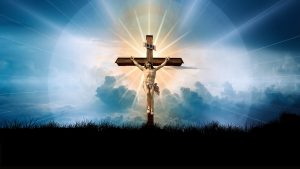
The best known tradition outside Christianity which offers support to the idea of Jesus’s divinity is Hinduism, which contains the notion of Avatārs, i.e. incarnations of the divinity. According to C. B. Purdom, “A Perfect Master is one who has gone through the process of cosmic evolution and involution and become a Man-God (5). An Avatār, or God-Man, is one who does not pass through those processes but is born as a man who knows himself to be God” (6). This would seem to fit well with the gospel accounts, and some Hindus believe that Jesus was indeed an Avatār, in which case a reincarnation of Krishna. Christians obviously have problems with this idea, in that they believe that Jesus was the sole incarnation of the divinity, and presumably would be very uncomfortable about enlisting Hinduism in support of their doctrine.

John Ivey notes a spiritual tradition which offers another possible scenario: “Mainstream theosophical and related teaching holds that there are seven great Masters, who incarnate at various times to help the progress of man, and this appears to be particularly important during changes of astrological age” (7). It is therefore possible that Jesus may have been one of these masters who, because of his spiritual power, was mistaken for the Divinity. He would have been not the but a Son of God. In this case, Jesus would obviously not have been a mere human being, but a very special soul. In the light of Ivey’s quote, it is interesting to note that Jesus is said to have incarnated around the beginning of the Age of Pisces. Is this the reason why an early symbol of Christianity was the fish?
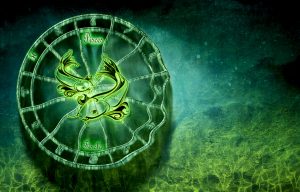 I’ll turn now to the other side of the debate. In my previous article I noted the extensive book burning which followed the Council of Nicaea, the purpose of which was to eradicate all evidence of alternative viewpoints. If we go back and speculate about what the earlier texts may have contained, the most obvious alternative scenario is that Jesus was a man who became God (a Perfect Master as described above), that is to say, who achieved the goal of the spiritual path, to reunite with one’s divine essence.
I’ll turn now to the other side of the debate. In my previous article I noted the extensive book burning which followed the Council of Nicaea, the purpose of which was to eradicate all evidence of alternative viewpoints. If we go back and speculate about what the earlier texts may have contained, the most obvious alternative scenario is that Jesus was a man who became God (a Perfect Master as described above), that is to say, who achieved the goal of the spiritual path, to reunite with one’s divine essence.
The most well-known tradition which states something along those lines is Islam, which says that Jesus was not the Son of God, rather a prophet, and that Christianity had made an error in asserting the former, which required a further revelation in order to correct it. (I do not feel qualified to comment on the precise relationship between a prophet and an enlightened being.)
It is also worth noting that the earliest followers of Jesus also believed that Jesus was human; that would be the position of the Jerusalem Church, and the groups known as Nazarenes, and Ebionites. They were condemned later by the Church precisely for that belief, although, being more contemporary, one might think that they were in a better position to judge. As Laurence Gardner explains: “By the middle of the 2nd century, the original Nazarenes, (the followers of Jesus and James’s teachings) were unpopular not only with the Roman authorities, but were being severely harassed by the Pauline Christians – particularly by Irenaeus, the Bishop of Lyon. He condemned them as heretics for claiming that Jesus was a man and not of divine origin as ruled by the new Faith. … Irenaeus wrote of the Nazarenes, whom he called ebionites (poor), that ‘…they reject the Pauline epistles and they reject the apostle Paul, calling him an apostate of the Law’ ”(8). (It is worth asking in passing, what would be the raison d’être of groups like this; how could they come into existence, if Jesus were merely a mythical figure?)
Paul is of course the person held primarily responsible for the establishing of Jesus’s divinity. Even he, although obviously believing that Jesus is Son of God in some sense, talks about the Son of God “who was descended from David according to the flesh” (Romans 1.3). This clearly suggests that Paul believed that Jesus was human at birth.
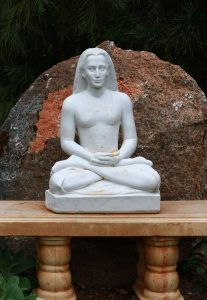 How is it possible to confuse a man who became a god with God who became man? I noted above that Jesus may have been a spiritual master, mistaken for the divinity because of his powers. I’ll now look at that idea in more detail.
How is it possible to confuse a man who became a god with God who became man? I noted above that Jesus may have been a spiritual master, mistaken for the divinity because of his powers. I’ll now look at that idea in more detail.
Christians unfamiliar with Eastern or esoteric traditions may think that the miracles which Jesus performs are signs of his divinity (9). Even his own disciples make this mistake, concluding “Truly you are the Son of God” (Matthew 14.33). They are, of course, ignoring what Jesus himself actually says, namely that anyone with faith can do the things that he does. He says “if you have faith the size of a mustard seed, you will say to this mountain, ‘Move from here to there’, and it will move; and nothing will be impossible for you” (Matthew 17.20) (10). Also, in Matthew (14.22-33) Jesus encourages Peter to try to walk on water. He fails because he does not have faith, not because this is impossible. Why would Jesus ask him to try this, if it were something only a divine being could achieve?
John Ivey says that the idea of the god-man has emerged because of Helena Blavatsky (thus the Theosophical tradition): “A ‘god-man’ is a Master, a man who has developed the ultimate ability of perfect control of mind over matter, having passed all four initiations” (11).
C. W. Leadbeater, co-founder of the Theosophical Society, discussing the advanced stages of the spiritual journey, says “at that level the man himself becomes a god among gods” (12).
Also, C. B. Purdom’s biography of Meher Baba is called The God-Man (13). Part 2, chapter 2 is called The Perfect Master. Purdom notes that “the term is unknown in the West, though familiar in the East from the writings of the Sufi mystics, Indian poets and philosophers. ‘Perfect Master’ is Sadguru in Sanskrit, and Qutub in Persian, an equivalent in English being ‘Man-God’. It is applied to one who has attained self-knowledge, who has gained mastery over his nature and achieved union with reality” (14).
According to the Perennial Philosophy, we are all spiritual beings who have incarnated into physical bodies, and our deepest nature is of the same essence as the Divine. If you ask a Jew if Jesus was the son of God, you are likely to get the response, “Aren’t we all?” According to Meher Baba, “we are all Avatārs” (15). The goal of the spiritual path is to reunite with the divine essence. Is that what Jesus actually achieved, presumably in the unknown part of his life before the start of his ministry? Was this the understanding of Jesus by his original followers? Have Christians therefore misinterpreted this by calling him divine?

Conclusion
In my previous article, I noted that Arianism posed problems for Constantine’s plan to unite the religions of the empire, and Charles Sutherland’s suggestion: “As a god Jesus could be associated conveniently with Sol Invictus. As a mortal prophet he would have been more difficult to accommodate”. “Constantine was interested in consolidating Jesus’s position as a god rather than a mortal prophet, and for this and other purposes he convened the Council of Nicaea in 325” (16). For nearly 300 years prior to the council, there had been intense debates about the precise nature of Jesus. Following the council there was an attempt to destroy all writings that suggested an alternative viewpoint.
In this article I have considered the possibilities that Jesus was either a prophet, a spiritual master who incarnates occasionally, or a human who had achieved the goal of the spiritual path (reuniting with the divine), thus a man who had become a god. It is interesting to note, therefore, that these were precisely the beliefs of the various groups which were later condemned as heresies by the Church. Gregory Riley explains that they “held various views on God and the person of Christ. In general, however, they thought of Jesus as a ‘mere human‘ or at best as some lower-level spiritual being. Some rejected the virgin birth and saw in Jesus a mere prophet whose father was Joseph. Others saw a new incarnation of the true Prophet, who (in their view) had appeared in earlier times as Moses and Elijah and others. Still others thought of Jesus as an angel or some other type of divine being, a ‘son of god’ lesser than the highest God” (17).
Surely these suggestions, especially the last in the light of what Christianity now believes, make more sense than what was decided at the Council of Nicaea, given its need to adopt as dogma the incomprehensible doctrine of the Trinity.
I’ll continue discussing these issues in the articles which follow.
Footnotes:
(1) The Dead Sea Scrolls Deception, Corgi, 1992, p13
(2) Tom Harpur, The Pagan Christ, Thomas Allen Publishers, 2004, p158
(3) Misquoting Jesus, HarperOne, 2005, p61
(4) The Sacred History, Quercus, 2013, p14
(5) thus an enlightened being, as in Hinduism and Buddhism
(6) The God-Man, George Allen & Unwin Ltd., 1964, p390
(7) The Promethean Fire, Able Publishing, 1998, p56
(8) Bloodline of the Holy Grail, Element Books, 1996, p132. He does not give the source of the quote from Irenaeus.
(9) In Hinduism such powers are called siddhis; see, for example, The Yoga Sutras of Patanjali.
(10) Meher Baba says something similar: “Many miracles have been attributed to me, but I do not perform miracles. When people think miracles have been performed, their faith has done it”. As (6), p254
(11) as (4), also p56
(12) The Monad, The Theosophical Publishing House, 1947, p68
(13) as (6)
(14) As (12), p381
(15) ibid., p391
(16) Disciples of Destruction, Prometheus, 1987, p124
(17) One Jesus, Many Christs, HarperSanFrancisco, 1997, p12